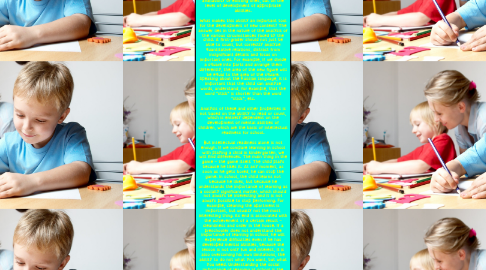Preschool childhood is a small period in a person's life. But during this time, the child acquires much more than in the rest of his life. The “program” of preschool childhood is really huge: mastering speech, thinking, forming relationships with people, primary skills of planning their activities and future life. V. A. Sukhomlinsky spoke about the importance of preschool education: "Children should live in a world of beauty, games, fairy tales, music, drawing, imagination, creativity. On how the child will feel, rising to the first step of the ladder of knowledge, what he will experience, depends all his further path to knowledge". Preparing a child for school is one of the most important issues of preschool education. It is difficult to give an unambiguous answer to it, first of all, because it is necessary to be able to distinguish between the main and the secondary. Many believe that the main thing a child should learn in preparation for school is to read, write and count. Here we are faced with the need to distinguish between two concepts such as skills and abilities. It is difficult to argue with the fact that reading and counting is a useful thing. However, they are not the most important acquisition in preschool age. The school program is designed in such a way that the student must constantly learn new content, acquire new skills, the development of which depends not on the availability of existing ones, but on the level of development of appropriate abilities. What makes this ability an important tool for the development of new content? The answer lies in the nature of the analysis of the various circumstances faced by the child. A first-grader should not just be able to count, but correctly analyze quantitative relations, distract from insignificant details and focus on important ones. For example, if we divide a square into parts and arrange them differently, the area of the new figure will be equal to the area of the square. Speaking about the Russian language, it is important that the child can analyze words, understand, for example, that the word "stick" is shorter than the word "stick", etc. Analysis of these and other properties is not based on the ability to read or count, which is entirely dependent on the development of mental abilities of children, which are the basis of intellectual readiness for school. But intellectual readiness alone is not enough. If we compare learning in school with playing a child in kindergarten, we will find differences. The main thing in the game – the game itself. The child plays because he likes it. At any moment, as soon as he gets bored, he can stop the game. In school, the child learns not because he likes, but because he understands the importance of learning as a socially significant matter, which should not always be interesting and it is not always possible to stop performing. For example, cleaning the apartment is important, but usually not the most interesting thing. Its end is associated with the achievement of a certain result – cleanliness and order in the house. If a preschooler does not understand the importance of learning in school, he will experience difficulties even if he has developed mental abilities, because the lesson is not only fun and interest, it is also overcoming his own limitations, the ability to do not what you want, but what you need. Understanding the social importance of learning at school is the organizing basis that helps the student to perform the required task by the teacher. The presence of motivation of social significance of educational activity is an important condition of readiness for school. If this motivation is not formed, the child will not perform homework, and parents will have to resort to additional tricks to the child did not do what you want, and what you need. Mental abilities and motivation are still not enough for successful study. It is important that students understand the uniqueness of the situations that are created in the classroom. It is understood that the future student must distinguish between the situation of communication with the teacher and, for example, with his mother. The ability to take on the role of the student and engage in contextual communication is an important point of readiness for school. Readiness to study for school is not limited to the ability to read, write and count. These skills themselves are secondary to a complex set of qualities that ensure the psychological readiness of the child to study at school. The lower the level of formation of these qualities is found in a particular child, the more educational activities in the school begins to acquire the properties of the educational process characteristic of preschool education: increased interest in the content of activities, reduced demands on its results, introduced game moments, etc.
by Юлия Бесогонова


